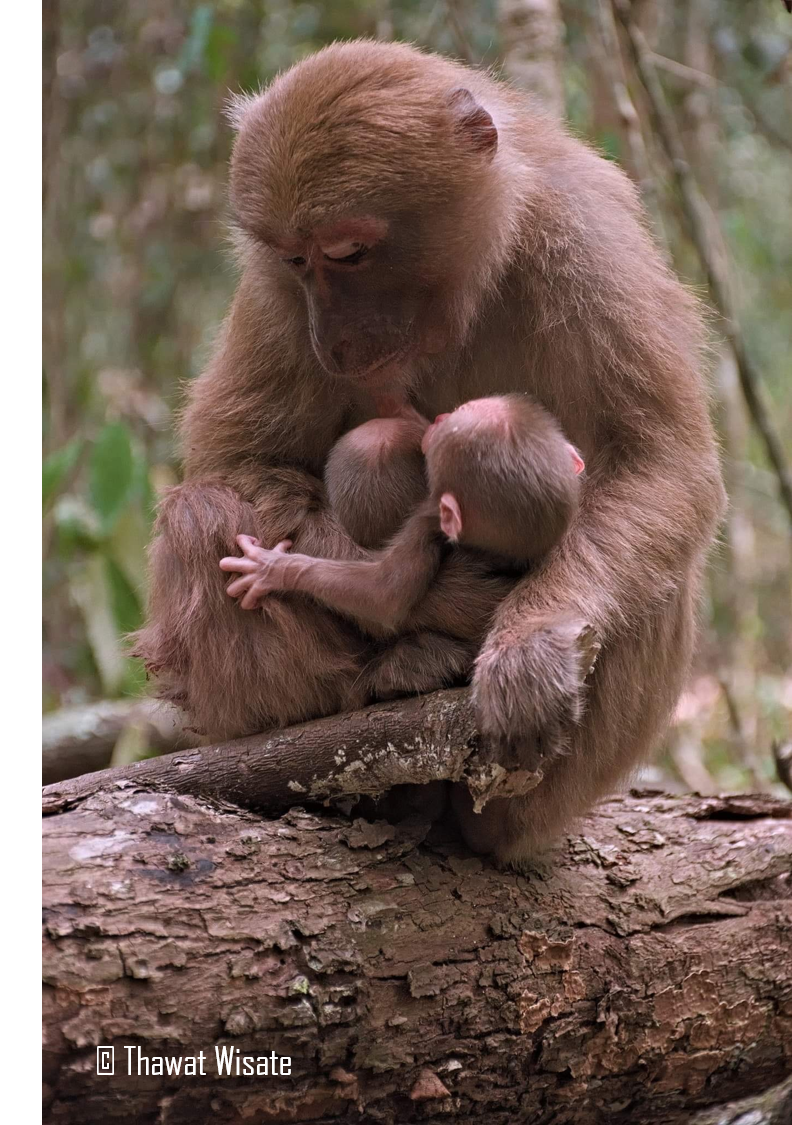News
Keep up to date with the latest news from MacaqueNet and its collaborators, including events, new projects and puplications.
Aug 2025: MacaqueNet Comes to Kolkata!
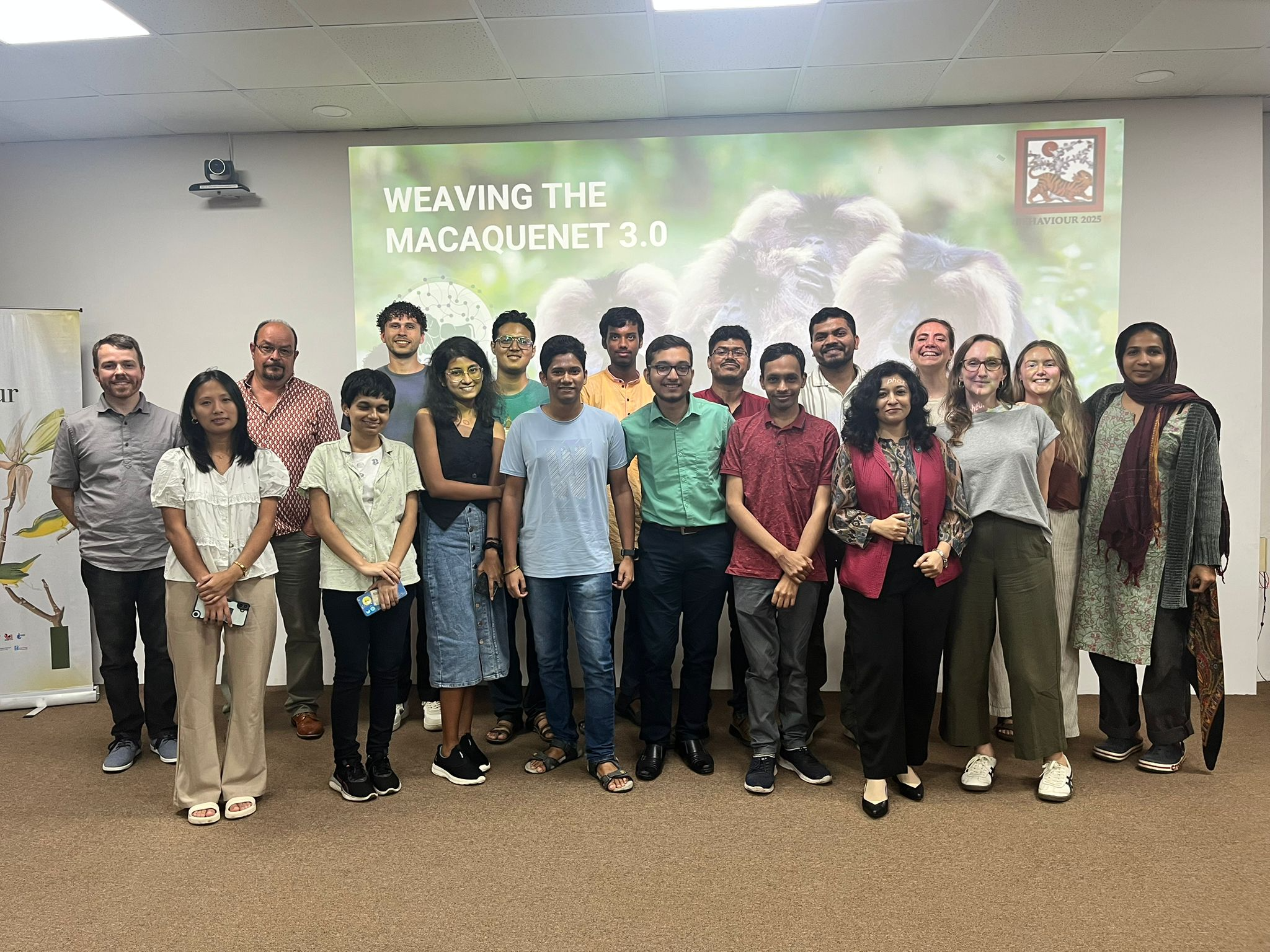
The Weaving the MacaqueNet 3.0 workshop took place in Kolkata, India on 24 August 2025, alongside the Behaviour 2025 conference. Over 50 participants joined in person and online to exchange ideas and strengthen collaborations across macaque research groups. The workshop featured lightning talks from early-career reserarchers and those from macaque-range countries. Four researchers pitched new collaborative projects exploring data types not yet represented in the MacaqueNet database — read about them here.
During the members-only general assembly, discussions focused on open-access possibilities and internal management workflows. Minutes are available here, and the consortium structure and management workflows diagram is available online.
MacaqueNet management team members Delphine De Moor, Lauren Brent, and Macaela Skelton hosted the symposium "Unlocking Comparative Research in Animal Social Behaviour" as part of the official Behaviour conference programme. Around 100 attendees joined to hear speakers including Jacob Feder, Stotra Chakrabarti, Genevieve Finerty, Natalia Borrego, Krishna Balasubramaniam, Greg Albery, and Harish Kumar.
A survey was shared during the symposium, which highlighted strong interest in comparative behavioural research among attendees, reflecting the growing enthusiasm for this field. Have your say and complete the survey now!
Visit our symposia page to learn more.
Nov 2024: Weaving the MacaqueNet 3.0 is coming in 2025
MacaqueNet members Anindya Sinha, Zakhiya PC, Lauren Brent, Delphine De Moor & Macaela Skelton have submitted a proposal for a symposium on comparative research in animal behaviour for the Behaviour conference in Kolkata, India 25-30 Aug 2025. We will also hold a MacaqueNet board meeting, which members can hopefully attend virtually. More details will follow soon, we hope to see many of you there in-person!
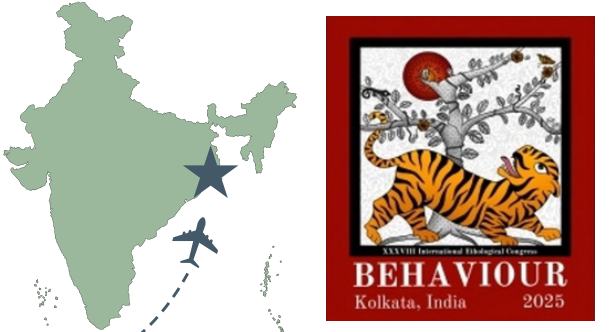
Aug 2024: New MacaqueNet Grant!
members Lauren Brent & Delphine De Moor in collaboration with colleagues Kenny Chiou, Erin Siracusa, and Noah Snyder-Mackler have won new a 5-year R01 grant from the NIH titled ‘Social Modifiers of Primate Lifespans’.
What does this mean for MacaqueNet?
- Our database manager extraordinaire, Macaela Skelton, will have her salary covered for 5 more years, so she will continue to handle data requests and new data contributions.
- Life history data will be added to the MacaqueNet database as a new open-access component (e.g., mean and max lifespan) for as many macaque species as possible.
- The project will submit a new data request in 2025 to hopefully align variation in macaque lifespan with variation in their social lives.
- University of Exeter will be hiring a new postdoc for this project, so tell the talented MacaqueNet ECRs you know to be on the lookout for a job advert in Spring(ish) 2025, to start Autumn(ish) that year.

Aug 2023: Weaving the MacaqueNet 2.0 at IPS in Borneo
MacaqueNet hosted its very first workshop on Aug 21st 2023 at IPS in Borneo, Malaysia. Dr Delphine De Moor led the workshop, providing updates about the database and current projects.
There was was also a lightening talk session, where 5 researchers presented their research during a lightning talk session. All 5 live in macaque-range countries, study Malaysian macaque species and/or are early-career researchers. Following the IPS workshop, on Aug 23rd 2023, we held MacaqueNet’s 2nd board meeting for data contributors, where we mainly discussed the database, GitHub and data requests. It was great to bring the community together to share new ideas in-person as well as online.
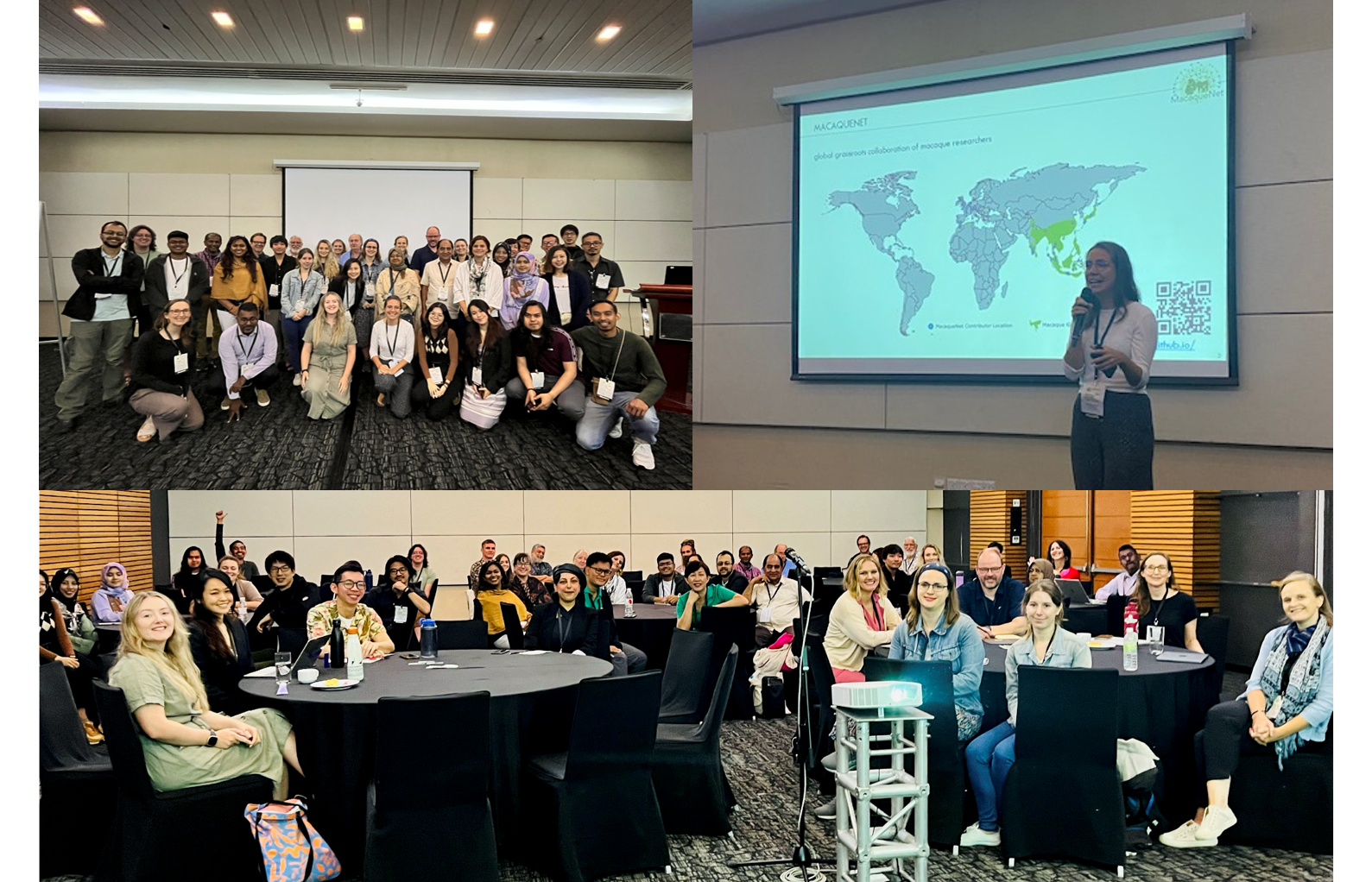
Jun 2023: MacaqueNet @ SoapBox Science
Dr Delphine De Moor showcased MacaqueNet at the annual SoapBox Science event in Exeter, UK on 10th Jun 2023. The popular event provides a platform exclusively for women in science, who gather in Exeter city centre to present their work to members of the public. During her 1 hour talk, Delphine gave an overview into what MacaqueNet is, why it is so important for the future of macaque research, and how the collaboration can help her ask questions about the socio-ecological drivers of social relationships across macaques. MacaqueNet garnered a lot of interest and people of all ages got involved in Delphine’s interactive games, one where you had to match different types of social pressures e.g. predation to the correct social solution e.g. large social groups, and another where you had to place each macaque species on the correct region of the map corresponding with where they are found in the wild. The audience even formed their own social network using string, which helped to convey the concept of social relationships. All in all, the day was a success!
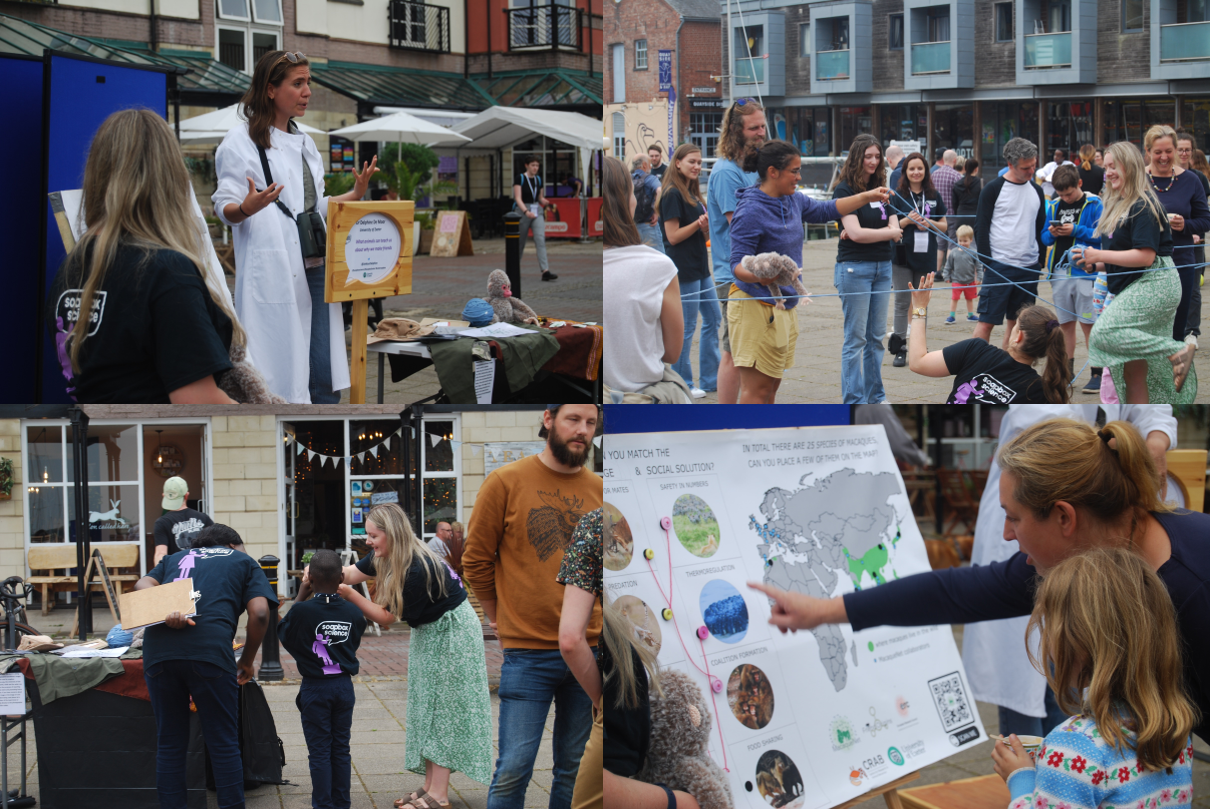
May 2022: New MacaqueNet logo
We are excited to announce that MacaqueNet now has its very own logo! We worked closely with Sarah Nason at Wapiti Studios, who has done a marvellous job visualising MacaqueNet. We wanted to include images of a few different macaques species, to emphasise the cross-species comparative nature of the collaborative network. The network element represents both our network of collaborators that have joined together to build MacaqueNet and make it what it is today, as well as hinting to the social focus of MacaqueNet. We think it’s perfect, even if we do say so ourselves!
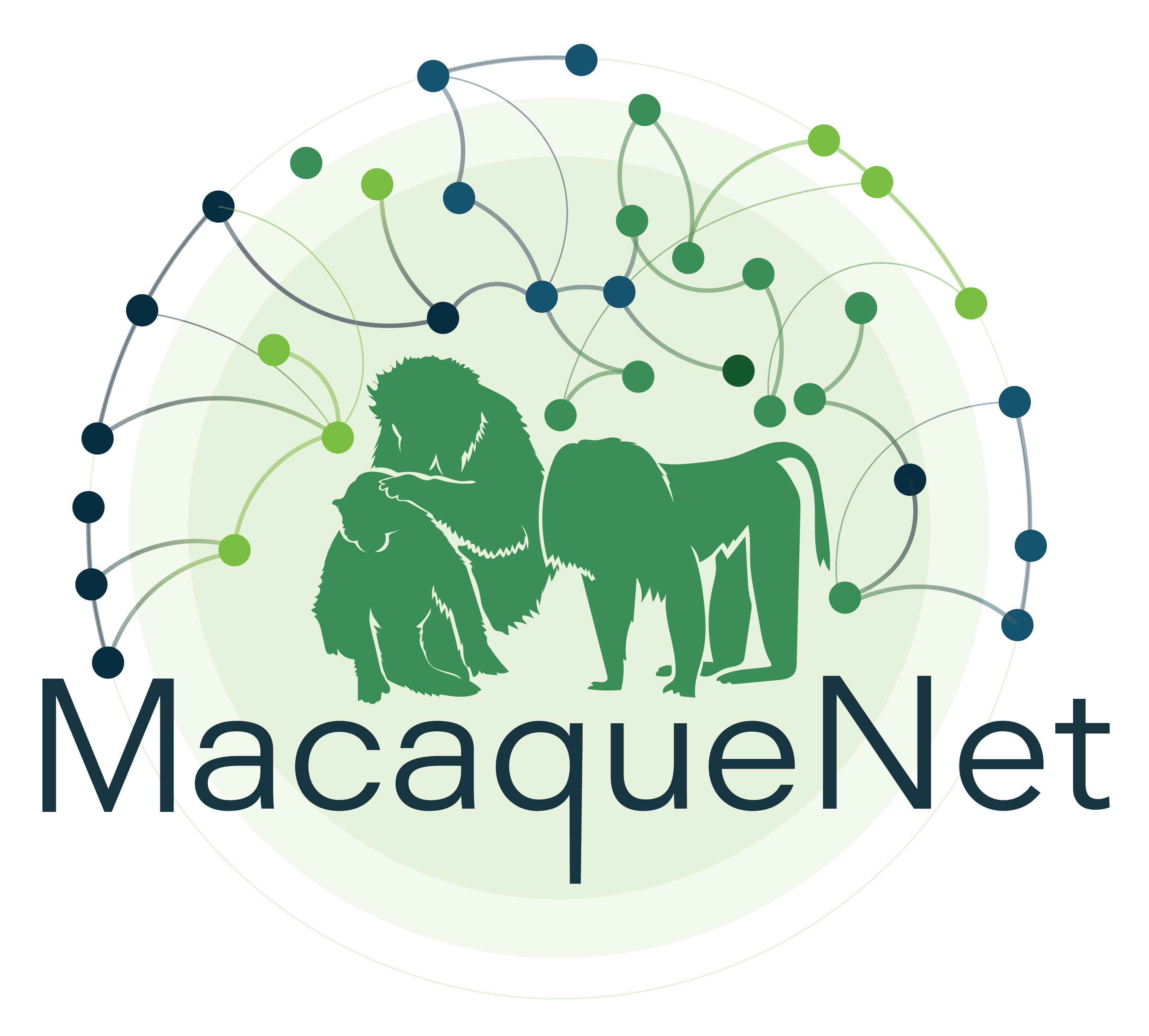
Nov 2021: “Weaving the MacaqueNet” symposium
In Nov 2021 we successfully hosted our first ever MacaqueNet conference. This 3-day symposium provided an opportunity for all the current data contributors to meet, discuss their research and learn about ongoing projects. Together, we discussed the future directions of MacaqueNet as well as the current state and future avenues of macaque social behaviour research as a whole. This event was a major milestone for MacaqueNet and marked the maturation of MacaqueNet from a mere concept to it becoming a international network of like-minded macaque researchers. While it has been amazing to see the database grow with behavioural data from all over the world, witnessing so many experts in macaque research come together, willing and open to collaborate and share resources in the name of “big team” science has been truly breathtaking and exceeded all expectations.
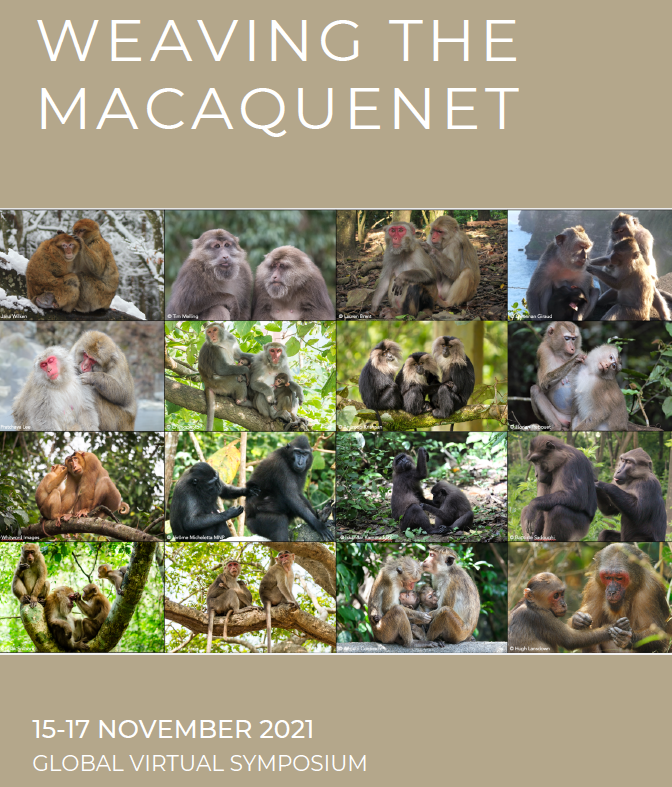
Updates From Collaborators
Apr 2022: Cayo Santiago field site
April 26th marked the start of the 2-day annual research conference for the Cayo Santiago field station in Puerto Rico, one of MacaqueNet’s many collaborator field sites. This year’s jamboree was extra special, as it was the first in-person event for the field site since before the pandemic! Over 60 researchers, including field assistants and early career researchers from global institutions including Cayo Santiago, Arizona State University, University of Exeter, New York Univeristy and Univeristy of Pennsylvania gathered to celebrate recent work on rhesus macaque social behaviour and genomics. Dr Delphine De Moor presented “MacaqueNet” and her current comparative project looking at links between social complexity and diversity. In true MacaqueNet style, each research group advertised their respective data resources, including the long-term behavioural database and tissue biobank. We are excited to see what kinds of collaborative studies emerge from this sharing of data at next year’s annual jamboree!
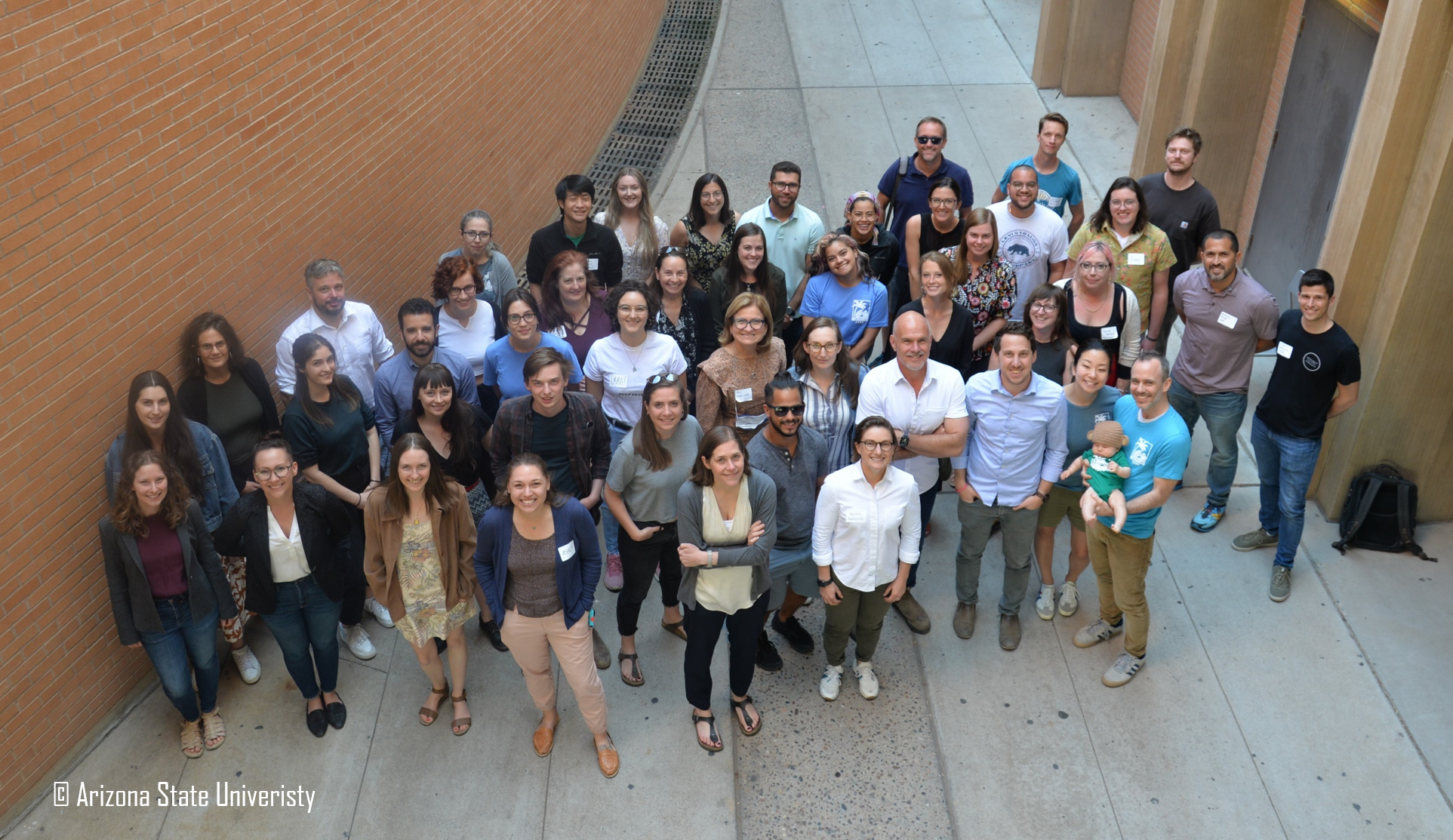
Apr 2022: Phu Khieo Wildlife Sanctuary
Our collaborator field site Phu Khieo in Thailand welcomed a pair of twin assamese macaque babies in 2022! These rare babies mark the first twin birth in over 200 births at the field site.
